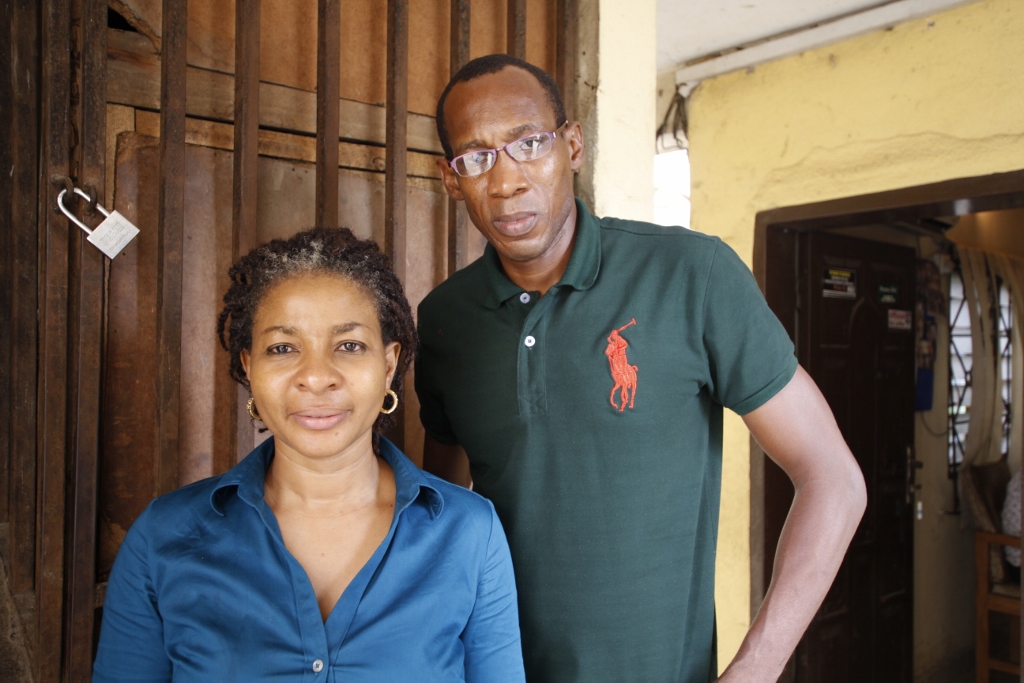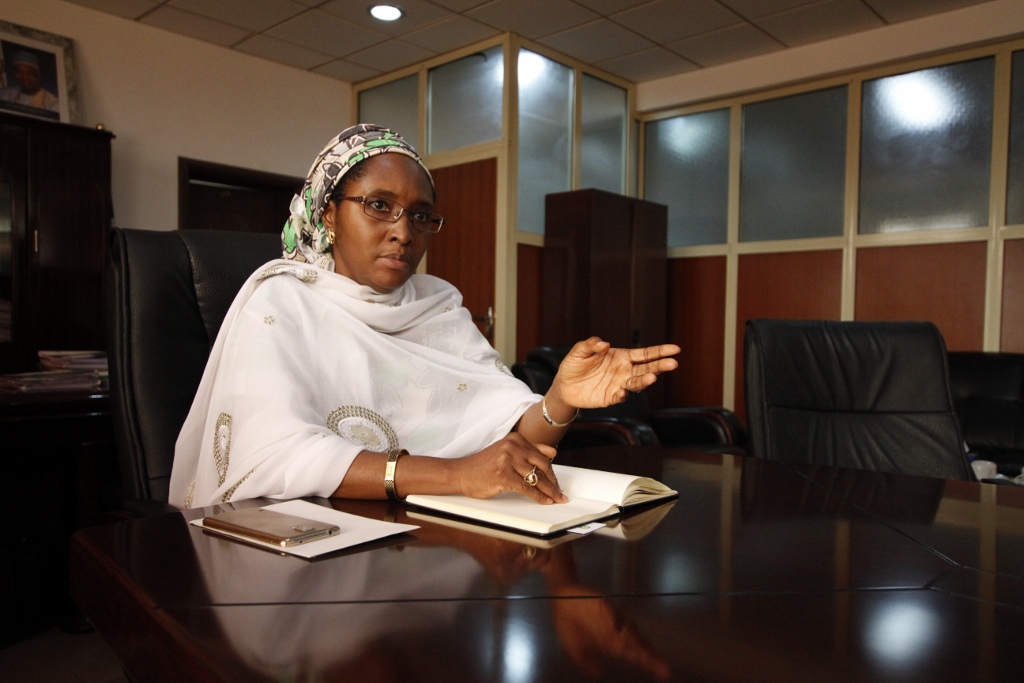Voices from Nigeria: Section 1504 “means more for Nigerians than laws from other countries”
 Each day about 100,000 barrels of oil pass through pipelines near Omegwa, but little of this wealth appears to have been invested in the school. (Photo: George Osodi / Panos for Oxfam America)
Each day about 100,000 barrels of oil pass through pipelines near Omegwa, but little of this wealth appears to have been invested in the school. (Photo: George Osodi / Panos for Oxfam America)
Experts on oil industry and community development in Nigeria say transparency law in US would help Nigeria reduce conflict, aid companies operating in the country, and encourage government to deliver on development.
Chris Hufstader is the Creative Manager at Oxfam America, specializing in extractive industries.
There’s a small village in the Niger Delta region called Omegwa, and it needs a new school. The one they have now was almost completely destroyed in fighting between rival factions struggling to control the community, and payments they would get from oil companies operating in the area. Since the fighting stopped about five years ago, the school now has a roof but no desks, chairs, or windows.
I spent two days walking around villages in the Niger Delta pondering one main question: Where is all the oil money going? The Niger Delta is where Nigeria, Africa’s largest oil producer and a major economic powerhouse, gets all of its oil, which comprises about three quarters of Nigeria’s $520 billion economy. But the communities that are producing the oil don’t have much to show for it. And recent news reports have given us insight into why.
Here at Oxfam we think that if we can get people some figures on what the oil companies are giving the government, they can then advocate for their fair share of it. It might help people like those in Omegwa fix up their school.
Oxfam is calling on the Securities and Exchange Commission to finally finish rules for part of the 2010 Dodd-Frank Wall Street Reform and Consumer Protection Act, known as Section 1504, which would provide transparency for oil, gas, and mining payments. The law requires companies to publicly disclose how much they pay for each project, in addition to how much they pay in total. This is critical information for communities like Omegwa living around these projects.
After my Niger Delta walkabout, I visited a few Nigerian experts to discuss why they need a working Section 1504. This is what they told me:
Transparency will reduce conflict
Ishmael Atorudibo, member of board of trustees, African Center for Corporate Responsibility: “We’ve struggled for a long time to resolve conflicts and we’ve been operating in the dark. We don’t know how much companies pay the government to carry out their responsibilities, so such legislation would go a long way to tackle conflicts between government, communities, and companies. If they know how much the companies pay the government it will help them hold their leaders accountable.”
Egondo Esinwoke, Director of the Community Institute for Enhanced Peace and Development: “Any oil-driven conflict can be traced back to lack of transparency.”
Transparency will help companies
Ishmael Atorudibo: “The government and the oil companies accuse each of not carrying out their responsibilities… The oil companies say [to community members] they have paid the government and it is failing them. The communities cannot verify claims that the companies have paid the government. So such [transparency legislation] would go a long way to helping communities to verify the financial transactions between the companies and the government.”
Ifeanyi Ajaegbpo, Program Director at Community Institute for Enhanced Peace and Development: “If the Nigerian government collects money from companies [and uses it for] the benefit of the people, then the companies would not have to step in and do projects. If people … knew how much companies pay the government, they would know how much the government really has, and their wish list would go down to a reasonable level.”

Need for project-by-project reporting
Section 1504 and its sister laws in the EU, Canada, and Norway require public, project-level reporting. However, opponents continue to suggest that companies do not need to report how much they are paying the government for each specific project each year, and they continue to look for methods to obscure or report aggregate project payments.
Ineba Bobb-Manuel, Niger Delta Regional Manager, Nigeria Stability and Reconciliation Program: “If a project lasts for let’s say five years, then we know certain figures align with this time period and this gives the communities more discretion around issues related to corruption in specific time periods. Without a specific time period it would be hard to hold people accountable for anything.”
Ifeanyi Ajaegbpo: “When the figures disclosed combine projects it is easier to lie and hide behind it. And the bigger the number, the higher the expectations of each community. I’ve worked at oil companies; for each project there is a budget line, you know what you spend in each community. A project-by-project accounting system is essential, it will work best because it gives each community a clearer idea of what to expect.”
Building a culture of accountability
Zainab S. Ahmed, Executive Secretary, Nigeria Extractive Industry Transparency Initiative: “When this law takes effect, it will help us determine what companies are delivering to government, compare this to other countries, and determine if we are getting enough of the resources. We’d like to see a reliable analysis from an independent source like the SEC, take the information and put it in the public realm so citizens can assess how effective the government is in managing revenues.”

Emeka Onanamudu, Citizen’s Centre for Integrated Development and Social Rights: “The US has political power in Nigeria. It will be really important to have this law in the US…it means more for Nigerians than laws in other countries. The US courts need to understand the impact of [Section 1504] in other countries. If they are serious about improving accountability and reducing corruption in the oil industry supply chain, then they need to make a serious commitment to delivering these [SEC] rules.”